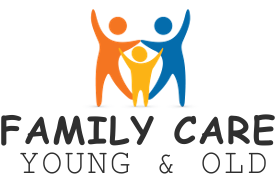When, in your opinion, is the most appropriate moment to begin planning for long-term care?
Many senior citizens in the United States want to age in place, which is possible with the assistance of a family caregiver or a home health assistant. Various Home Care options are available to meet the needs of aging parents, each of which has its own set of advantages. If you are preparing to care for your aging parents or if you want to put up a comprehensive plan for your future, it is critical to explore all of your alternatives.
Having a caregiver on hand may alleviate a great deal of stress and should never be put off considering long-term care needs until later in life. Providing long-term care is a sort of care provided over a lengthy period, such as several years.
LTC planning should never be put off, and having a caregiver on hand can alleviate a great lot of stress and anxiety. The assistance of a family caregiver or a home health aide is an option for many elderly Americans who wish to remain in their own homes for the most extended period possible.

Caregiving for your parents or creating a successful plan for yourself requires careful consideration of all possibilities. North River Home Care’s experienced caregivers may be able to assist you.
Wide range of services:
Home care alternatives might vary widely depending on a person’s specific needs. Some older family members may require only part-time care in their own homes, while others require round-the-clock assistance to meet their basic needs. Assuring that those in need’s emotional and physical needs are satisfied is easier when a strategy exists. People need to know about these five forms of care before deciding on a long-term care strategy. Service providers offer a full range of private duty and private pay-services.
Services including companionship, housekeeping, bathing, dressing, and transportation are examples of “non-medical” services. In addition, there may be some options for dementia or respite care. Employees employed by a private organization, provide non-medical services such as companionship and light housekeeping. This model provides a higher level of protection for the patient and a lower liability risk than a nursing registry.
Health Care Registries/Nursing Registries:
As “matchmaker” services, nursing registries and healthcare registries connect consumers in need of Home Care with registered nurses. However, the patient, a family member, or a family advisor is responsible for controlling and supervising the worker in a registry. With nursing registries, most oversight, taxes, and worker’s compensation can rest on the family. Untrained or inexperienced nurses may not be able to provide adequate care for patients. For primary personal care and minor health services, nurses may be a decent option. However, there are some drawbacks to consider.

Health and Wellness:
Another way of putting it is, home health care refers to medical services provided by nurses in the patient’s own home to treat illness or injury. Can treat wounds, injections administered, and health conditions monitored by health care practitioners. Some caregivers can monitor diabetes, blood pressure, heart disease, and dialysis, among other health conditions.
Medicare-certified Home Health Agencies (HHA’s) typically provide services. They can also provide rehabilitation services such as speech therapy, physical, occupational therapy, and respiratory therapies through home health care. Medicare may reimburse the cost of physical and speech therapists.
Hospice and palliative care:
Hospice care is specialized medical care whose sole purpose is to ease the suffering of those facing a terminal disease. It’s possible to receive hospice care at home or in a hospital. Most hospice alternatives necessitate that a caregiver is there at all times for the patient. Hospice is a decision that the patient and their family make. Nursing, mental health, and spiritual care are all part of hospice care.
Medicaid’s home and community-based care program, in addition to the services listed below, also provides the following additional benefits. Medicaid home health and community-based care are health insurance programs designed to assist persons who cannot pay for their medical treatment. Its purpose is to keep the person out of a nursing home as long as possible. The services are available to anyone, regardless of whether they are housebound or unwell.

An individual must first be assessed by a social worker from a state agency before being considered for Medicaid assistance. To get Home Care, they must be approved for a specified number of hours or given a voucher to go toward a specific quantity of care. Taking care of your elderly parents at home is a possibility if you make the necessary preparations.
Choosing at-Home Care over nursing facilities is a personal decision. Many seniors find living in a nursing home or assisted living facility a depressing alternative to their current living situation. According to most respondents, people prefer to stay in the location where they feel most comfortable, which is typically their own house or the home of a close family member.
Choosing to age in place can bring the following benefits:
- Comfort
- Familiarity
- A feeling of well-being
- Increased satisfaction with one’s life
Older persons can remain in their homes for a more extended amount of time if they can identify the type of assistance they may require in the house. Providing simple care and companionship may be all that is required to allow someone to remain in their home in some instances. Other people may require home healthcare support or hospice care to remain at home.
Stroke:
Your loved one may be left feeling bewildered, overwhelmed, and unsure after suffering a stroke. North River Home Care provides the highest level of care for senior stroke rehabilitation.

Injuries to the brain:
Older people who have suffered a brain injury often require the assistance of a caregiver to aid in their recovery. Our compassionate, highly trained caregivers can offer the support and comfort required for a speedy recovery.
Amputation:
In the wake of an amputation, caregivers at North River Home Care are committed to enhancing the patient’s overall health and function. Mobility, developing independence, and executing chores given the new limits are carefully and compassionately studied.

Leave a Reply